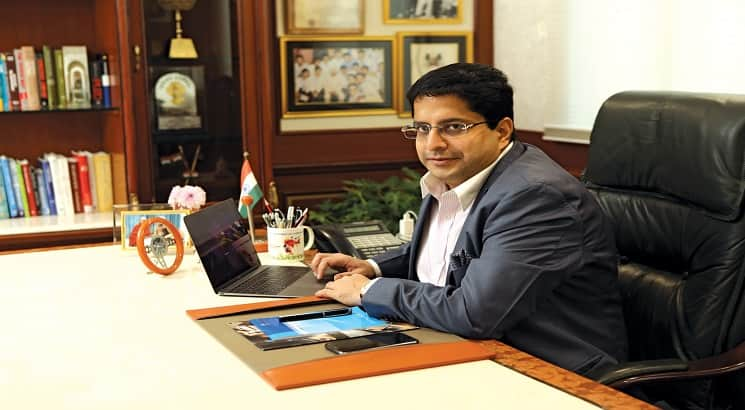Empowering students for future job challenges
Abhay Anand | April 12, 2018 | 12:53 PM IST | 2 mins read

Dr. Prashant Bhalla, President, Manav Rachna Educational Institutions, writes about future jobs and areas universities need to focus to make students job ready...
Data scientist, digital artist, app developer, virtual assistant, blogger. What do they have in common? All these are jobs that didn’t exist 20 years ago.
When I was growing up, I was not aware of the term ‘data mining, data scientist, user-experience design’ or ‘front-end engineering’ and now they’re some of the most desirable careers in the world. Nowadays, we cannot just prepare students for certain types of careers, we have to allow and teach them to adapt to whatever new careers come into view.
According to a 2016 report by the World Economic Forum, 65 percent of children entering primary school these days will eventually end up functioning in entirely new job types that do not yet exist.
Even old jobs will look completely dissimilar in workplaces altered by technology, changing demographics and globalisation. So how do we plan to prepare students for jobs and workplaces for future? We cannot predict exactly what these new jobs will be.
Here are a few important skills that are essential for the students to deal with the future challenges.
Complex problem-solving
In the industrial age of the early 20th century, most of the organisation needed workers who could basically demonstrate up on time and follow instructions. Going forward with those needs, our public education system emphasized more on seat time, rote memorization and fundamental skills development. But in the information age of the 21st century, the organisation needs workers who can think creatively, recognize and resolve more and more difficult and complex problems.
Critical thinking
From Wikipedia to mass media, we’re loaded with information today than at any time in history, requiring employees to be well-organized, critical thinkers and customers of information. The candidate needs to quickly distinguish between credible and non-credible sources; scan information for bias, reason and precision; and recombine those facts to generate new answer and products.
Collaboration
As tomorrow’s workers will team up with colleagues across the hall and around the globe, they will need technological and communication skills and the ability to understand other cultures and viewpoints. When it comes to 21st-century, students can collaborate with various online platforms to gain essential skills through which they can get a desired competitive edge.
Online opportunities
They need to work and learn online with peers from varied backgrounds and geographic areas.
Team up on group projects where they learn to plan, delegate, communicate, and hold one another accountable for meeting a common goal. Practise their foreign-language and cultural skills with native speakers online.
Some of the jobs of tomorrow are commercial civilian drone operators, digital currency advisor, data scientist, digital artists, waste data managers, data hostage specialists, machine learning etc.
Our students have ideas that we have never thought of, so we have to empower them very early and make them feel that they can be the changemakers.
Follow us for the latest education news on colleges and universities, admission, courses, exams, research, education policies, study abroad and more..
To get in touch, write to us at news@careers360.com.